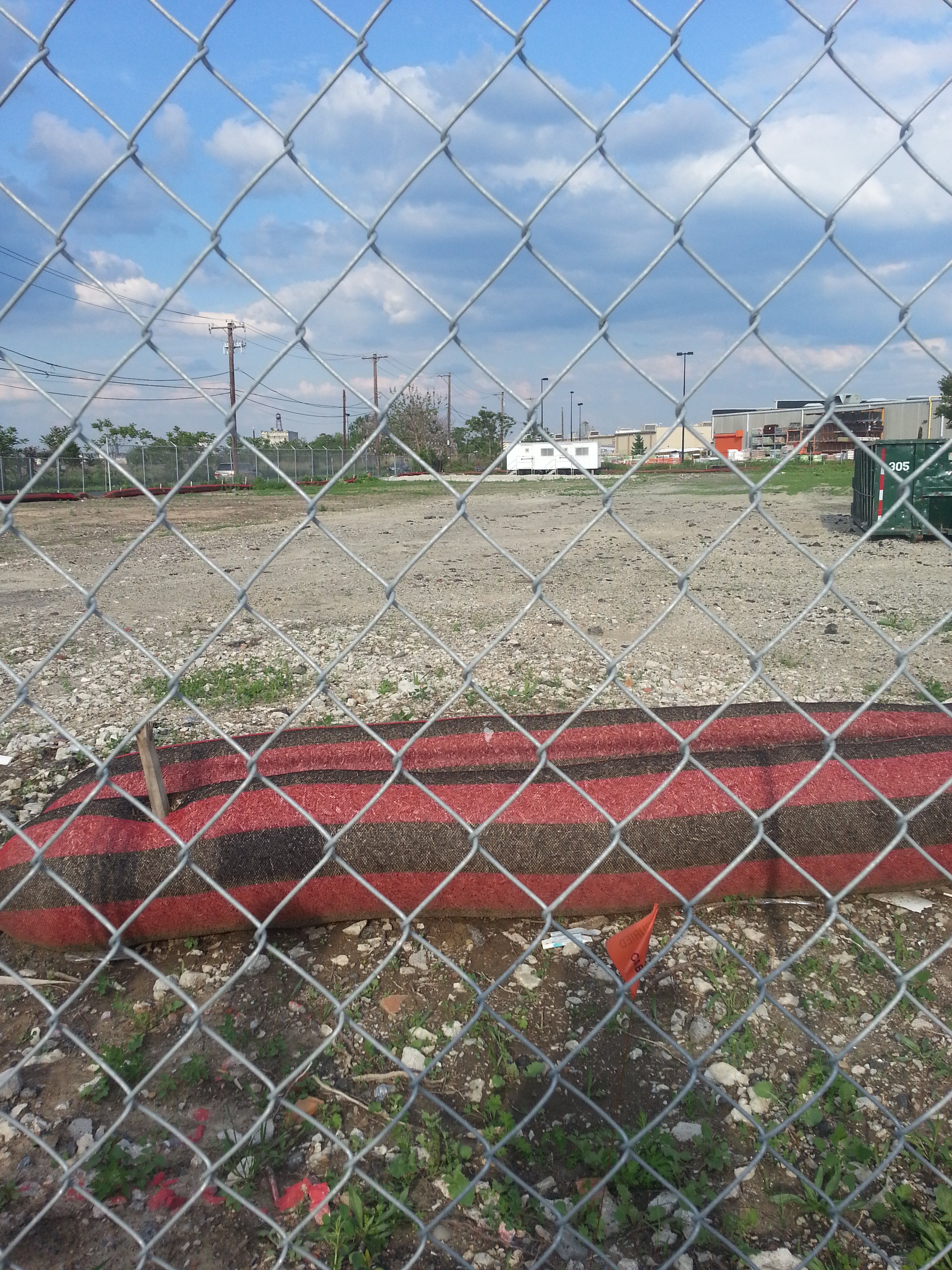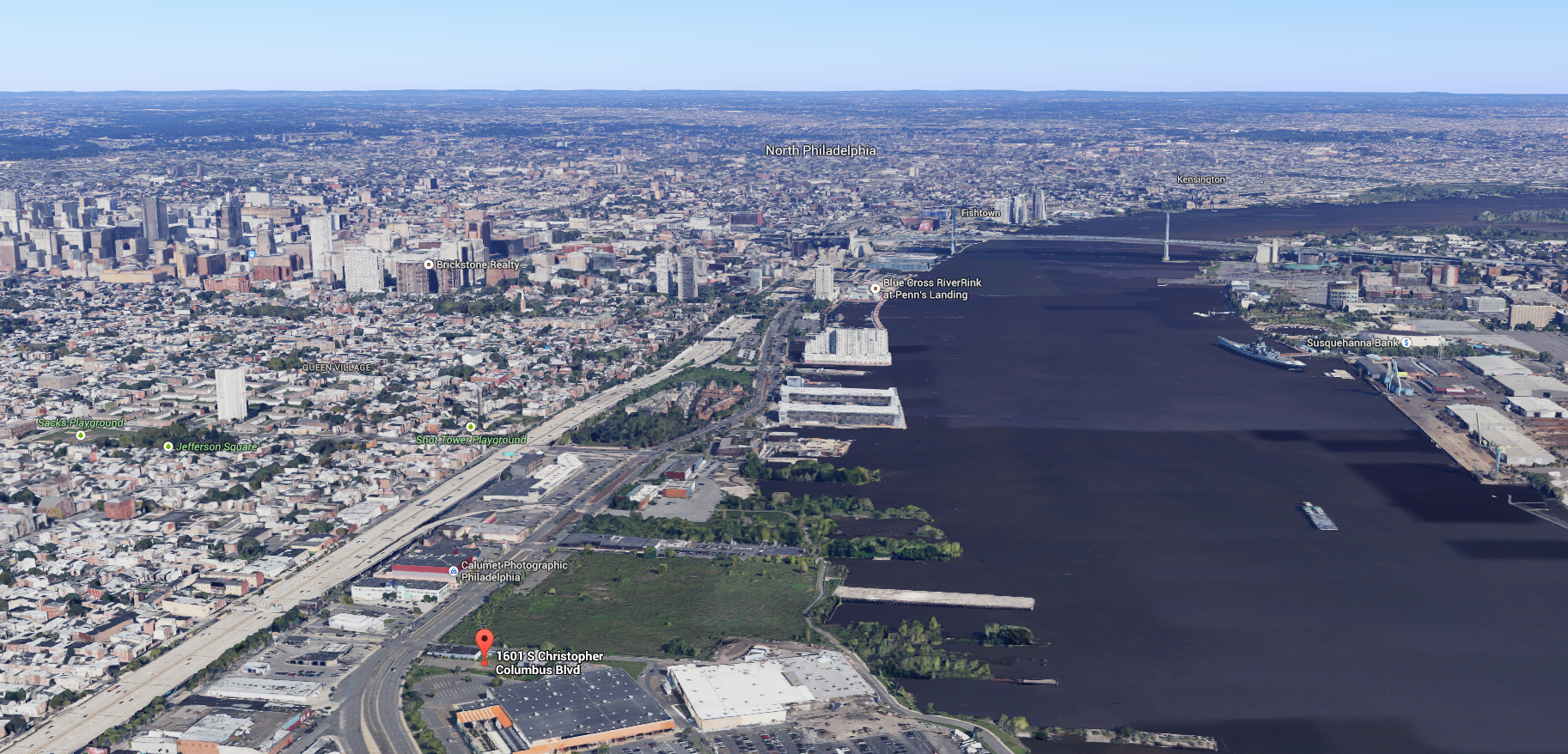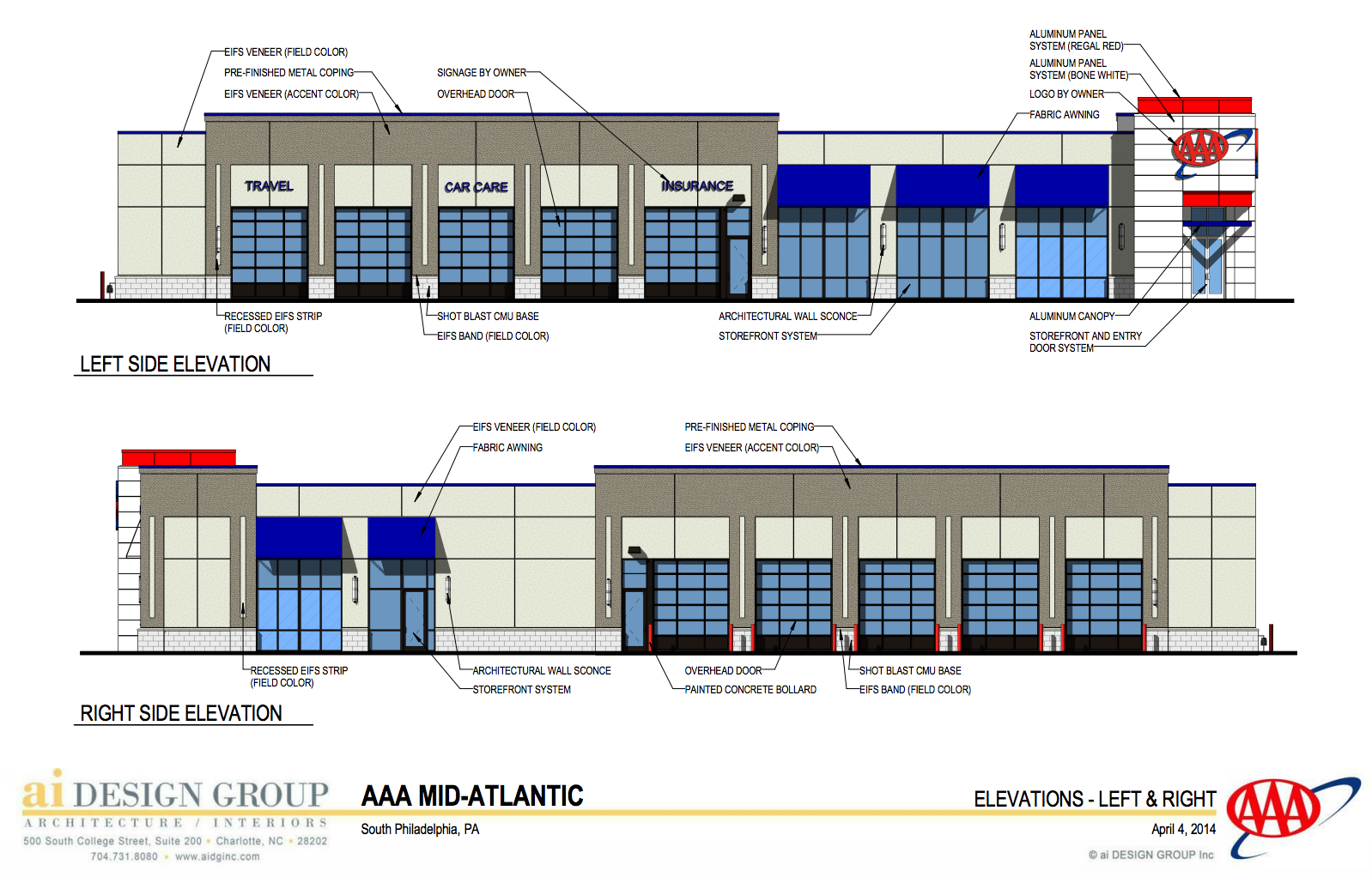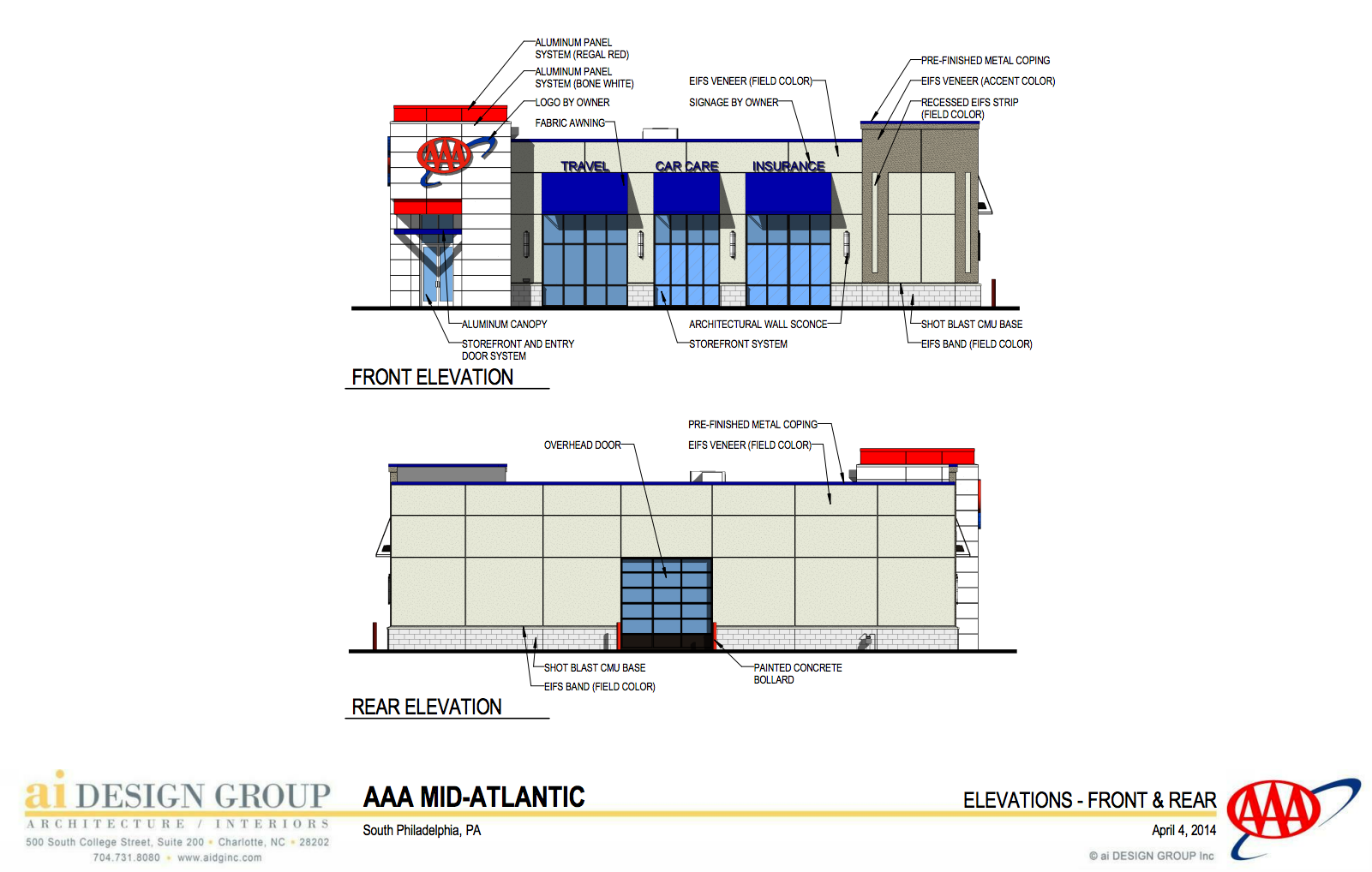Planning Commission rejects AAA’s waterfront plan

The Philadelphia City Planning Commission (PCPC) has rejected AAA’s plan to open a travel/insurance/car repair shop at 1601 S. Columbus Boulevard in Pennsport, with the majority agreeing the proposal is too auto-centric and otherwise detrimental to the city’s long-range goals for the waterfront.
Central Delaware Advocacy Group Chairman Matt Ruben said it was especially gratifying that PCPC’s staff recommendation was so strongly against the proposal. It showed what a clear-cut case this was, he said.
But AAA attorney Carl Primavera said little about this case is clear, and a lawsuit is inevitable. AAA and the owner of the land they want to open on, have both spent too much money and time on this project, all because the city’s Department of Licenses & Inspections issued a zoning permit. L&I and city planning have since said that permit was issued in error, but Primavera said Tuesday afternoon that planning staffers reviewed and approved the AAA plan before L&I issued the permit. He said AAA never knew there was any question about the validity of the permit until after the property owner demolished the former structures, based on certainty AAA would be moving forward.
Before the vote, representatives of the quasi-city agency that oversaw development of the Central Delaware Master Plan, CDAG and the Pennsport Civic Association all said – as they’ve said all along – that a driver-focused business would hamper the city’s goals and residents’ wishes to ease pedestrian and cyclist traffic, and link walkers and cyclists with the waterfront.
AAA representatives said they have heard and addressed community and planning concerns by reducing the number of driving entrances to the site from four to two – one curb cut each on Columbus Boulevard and Tasker Street. They’ve added trees, and pushed the building up to the street from where it used to be in the center of the site. The parking that once surrounded the building is now behind it.
During the presentation, Primavera noted that the AAA proposal would fit well with the current development around it: Home Depot and Wal-Mart.
PCPC Chairman and Deputy Mayor Alan Greenberger said he supported the staff recommendation not to approve. He said he was concerned that letting this project go forward could prevent more appropriate development later.
Commissioner Pat Eiding said he did not like denying the property owner and AAA the right to move forward when the kind of changes the master plan calls for are years away for that area. Home Depot and Wal-Mart aren’t going anywhere, he said, and they will continue to use Tasker Street. Unless the discussion is about closing Tasker to vehicles, it made no sense, he said. He also noted his long-standing concern that the overlay would hamper the ability to create new businesses and jobs. But when it came time to vote, Eiding abstained. All other commissioners voted against the proposal.
The AAA proposal met strong community opposition from the start. It also had Pennsport residents and waterfront advocates questioning how well L&I applies the city’s own zoning rules.
AAA was first granted an over-the-counter zoning permit by L&I. Pennsport discovered this when workers began tearing down buildings on the site, which were formerly occupied by a construction company.
Pennsport representatives were perplexed because the use isn’t allowed by right under the current Central Delaware Overlay. When told that the permit was applied for the day before the current overlay went into effect, Pennsport – and later the Central Delaware Advocacy Group – asked that the permit be revoked, because the terms of the interim overlay that was in place at that time weren’t enforced by L&I either.
At first L&I said they couldn’t revoke a permit and told Pennsport to appeal it. But then L&I changed its mind and told AAA they’d have to either re-apply under the new overlay and seek zoning relief, or file a Plan of Development (POD) for PCPC consideration, as the old overlay required. AAA’s decision to file that POD is what brought them before the PCPC.
Ruben called for a “full accounting” of how the permit came to be issued in error. “The entire Master Plan and overlay, all of it, the entire Philadelphia zoning code, depends on proper handling of permit applications,” he said. “If permit applications aren’t handled properly, then there is no law.”
WHYY is your source for fact-based, in-depth journalism and information. As a nonprofit organization, we rely on financial support from readers like you. Please give today.






